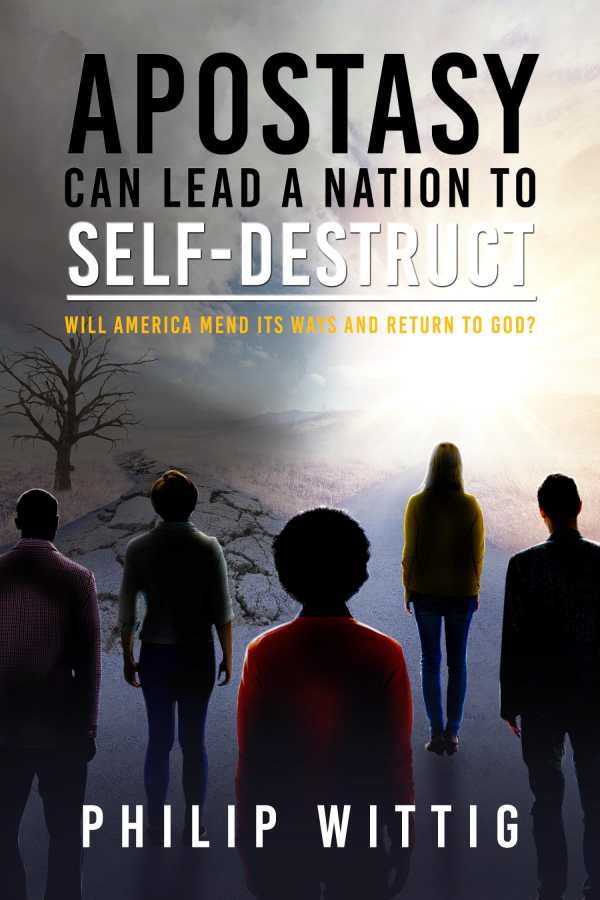Apostasy Can Lead a Nation to Self-Destruct
Will America Mend Its Ways and Return to God?
Drawing connections between the nation’s founders and contemporary religious and cultural arguments, Apostasy Can Lead a Nation to Self-Destruct makes a passionate case for national repentance.
Both a political and a religious book, Philip Wittig’s Apostasy Can Lead a Nation to Self-Destruct seeks connections between the Bible and the fate of the United States.
Conservative in approach and perspective, the book draws scriptural and historical connections between the ancient, Hebrew Bible-era kingdom of Israel and the United States, both of which are said to hold a special place in God’s heart. It argues that both nations, though originally dedicated to God, fell from grace due to their national sin. It names the specific sins each committed, including things like legalized abortion, and works toward arguing that people in the United States need to repent and return to God, both as individuals and as a nation.
From this perspective, the US is an exceptional nation that was at its best in 1945—before the Supreme Court banned prayer in school, before Roe versus Wade made abortion legal, and before the court recognized pornography as a form of free speech. The book argues that all such decisions run counter to God’s laws and the Bible. It also presents the founders as men who believed the US should be a Christian nation, consecrated to God and protected and beholden to God’s laws. Historical points, rather than being approached critically, are filtered through faith, and the work is more testimonial than academic.
This work is brief but also organized and clear. It moves from the concept of consecration into notions of dedication, sin, and response. Each chapter trades between considering biblical accounts and American history. Quoted material highlights points without crowding the text, including intriguing quotes from Noah Webster on education and from George Washington’s inaugural address.
Language is straightforward and has a textbook feeling, though it is more conversational than rhetorical. Defined subheadings, quotations, and summaries of key ideas make the work easy to navigate.
Presenting a standard conservative and nationalistic approach for understanding American society, the book’s thinking imitates that which drives the culture wars. It seeks to show that its arguments regarding American exceptionalism have deep historical roots and biblical merit, and are therefore powerful and true. Its connections between its contemporary cultural arguments and the notions behind the nation’s founding are tenuous, though.
The book’s persuasiveness is limited because its arguments are so focused on a small slice of American religious history. No other way of seeing American history is treated seriously; things that run counter to the book’s perspective are disparaged. From a practical perspective, this limits its prospective audience to fellow conservative believers who likely already share its views.
Apostasy Can Lead a Nation to Self-Destruct reads like a tract as it ties traditional Christian arguments for repentance into American history and politics.
Reviewed by
Jeremiah Rood
Disclosure: This article is not an endorsement, but a review. The publisher of this book provided free copies of the book and paid a small fee to have their book reviewed by a professional reviewer. Foreword Reviews and Clarion Reviews make no guarantee that the publisher will receive a positive review. Foreword Magazine, Inc. is disclosing this in accordance with the Federal Trade Commission’s 16 CFR, Part 255.

